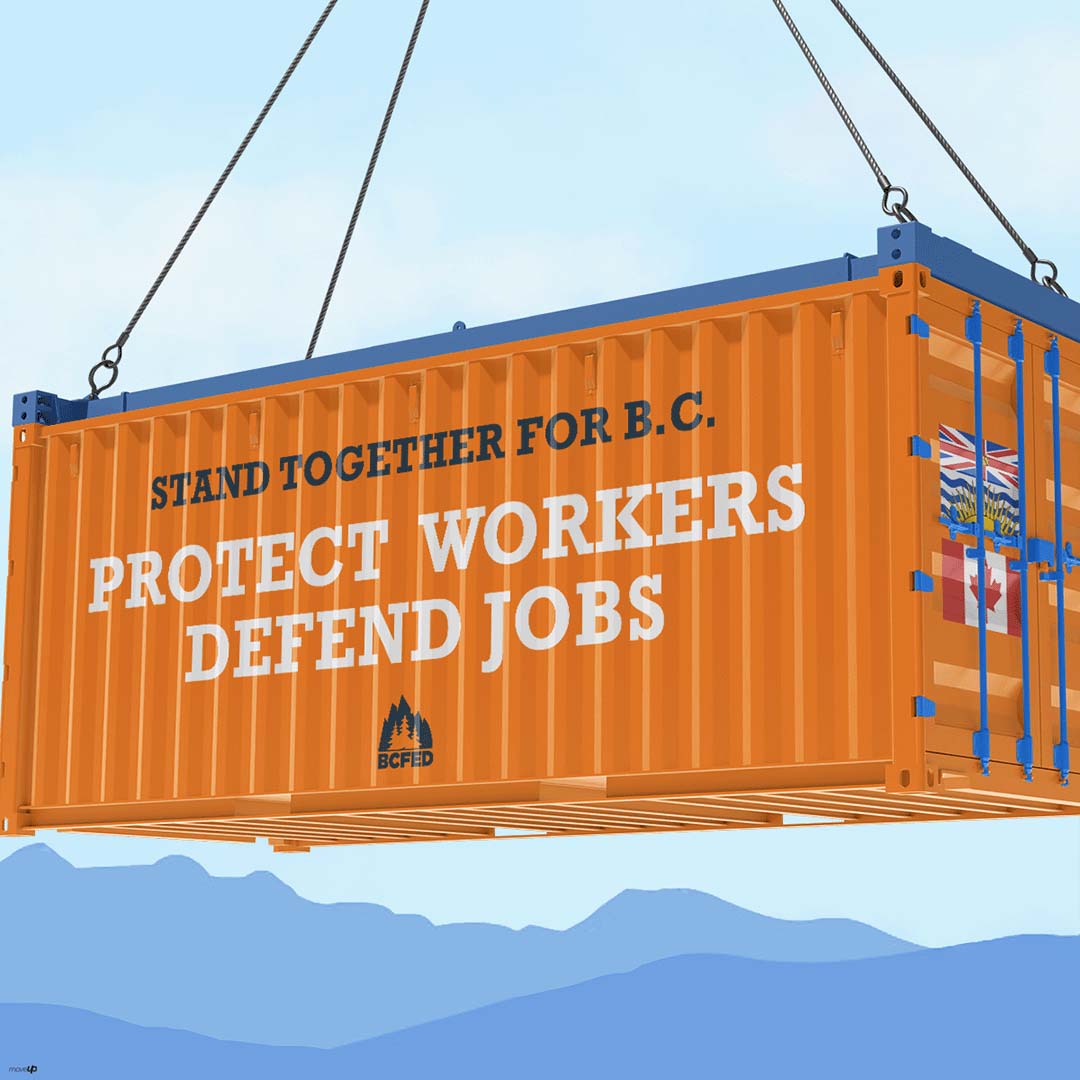
by Sussanne Skidmore and Hermender Singh Kailley
First published in the Vancouver Sun February 19, 2025
Donald Trump’s looming 25 per cent tariff is a huge danger to our economy — and no longer hypothetical, with new tariffs on aluminum and steel exports.
The impact of across-the-board tariffs would be devastating, with 124,000 B.C. workers potentially losing their jobs in the next four years, and many more caught up in the ripple effects.
Defending our workers and our economy requires immediate action. But our vulnerability to the whims of one man signals the need for deeper, more far-reaching change.
In the immediate term, we’re telling our governments their first priority must be to defend jobs. Working people are the backbone of our economy, driving all the wealth our province creates. Good incomes allow them to raise their families, shop in their communities, support local businesses and build a better future for themselves and all of B.C.
Any measures the government takes to support business, then, must be tied to preserving jobs. Job protection is the most important measure of success. Income support like employment insurance will unfortunately be necessary, but our best and first line of defence is avoiding job loss in the first place.
We can take action as governments, businesses and organizations, as well as individuals, by buying B.C.-made and Canadian-made products, especially the union-made products that sustain stable, quality jobs. Further, the province’s decision to fast-track key projects offers a welcome assist to industries and workers that are among those most likely to be hardest hit.
But as urgent as they are, these are also short-term, defensive solutions. They can’t fully address our dependence on a single trading partner — especially when that partner has proven to be not only unreliable, but downright malicious and coercive.
Tackling that vulnerability will require us to take bold, concerted action. The opportunity is now here to do just that.
If Trump was hoping his barrage of threats and “51st state” rhetoric would divide Canada or intimidate us into compliance, it has backfired. He has inadvertently forged a remarkable public consensus and unity right now across the country.
Trump, on the other hand, can count on no such consensus in his own country. Our conversations with U.S. unions consistently show American workers are as outraged as we are at Trump’s assault on the economy and autonomy of an ally and friend.
This offers us a chance to refocus our economy. “Value-added” and “diversification” have been mantras here for decades. But while we’ve had some success, a huge portion of our economy and a very large number of B.C. communities still rely on sending raw materials south of the border and elsewhere for processing — and then, very often, buying them back as processed goods.
Now’s the time for us to shift those efforts at diversification and value-added production into high gear and patriate much more of the processing and manufacturing we have left to others, especially the U.S. B.C. workers can and should be doing that work.
That’s a strategy we can pursue in tandem with other measures aimed at diversifying not just what we produce but who we sell it to: opening new global markets, expanding our relationships with existing partners and making it much easier for Canada’s provinces and territories to trade with each other. And we can do that without deregulating in a race to the bottom; our aim should be strong labour standards and good, secure jobs.
We also need to recognize how fundamentally the ground has shifted. For decades, we’ve relied on international treaties and enforcement regimes to stabilize trade. But it’s time we recognized that treaties alone can’t protect us from authoritarians and bullies. We must forge more and stronger partnerships with democratic forces throughout the world and strengthen the resilience of the civil institutions — and labour unions rank high among them — that can blunt the power of would-be strongmen.
And make no mistake: The same authoritarian nationalist forces that brought Trump to power have also made dangerous inroads in many other countries — including here in Canada, where a disturbing number of politicians have echoed Trump’s rhetoric and even advocated compliance with his demands. We need to be wary of this rhetoric in our own backyard and refuse to let political ambition seed hate and division. We are better than that as a country.
Whether Trump decides on March 4 to proceed with his tariffs or not, it should be clear that our relationship has been ruptured, possibly for a very long time. Diversifying trade, strengthening our economy, bolstering democracy here and abroad and, most urgently, supporting the workers our country relies on are now not only economic imperatives, but essential to our sovereignty.
The time to act is now. B.C. workers, families and communities are depending on it.
